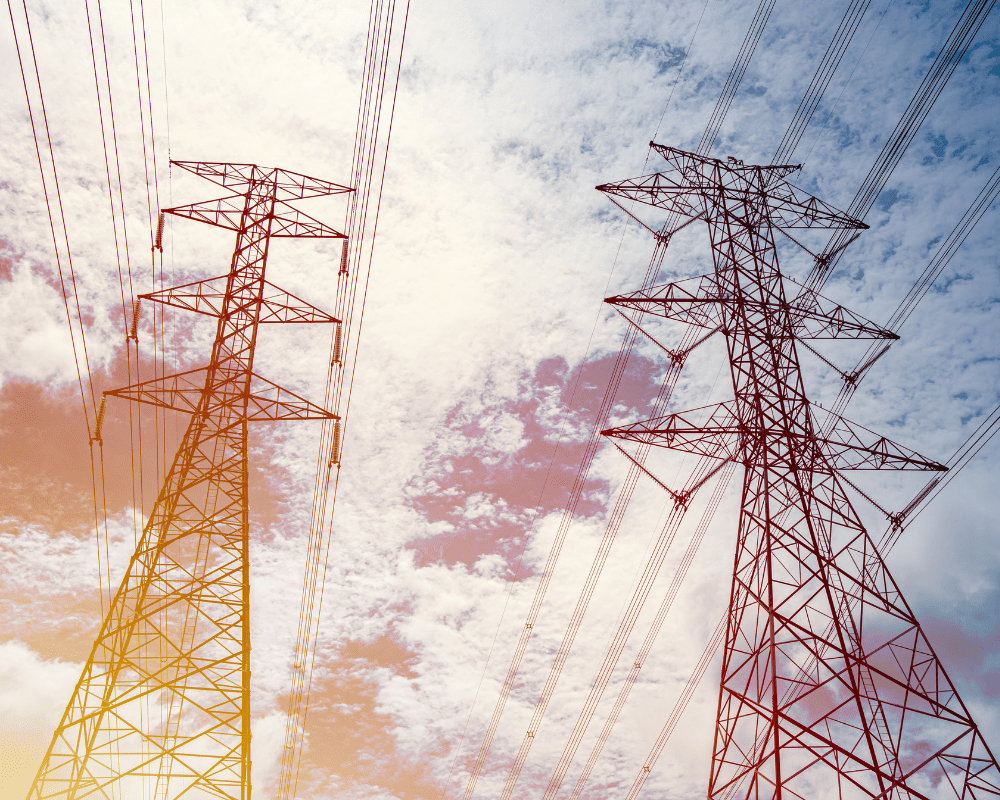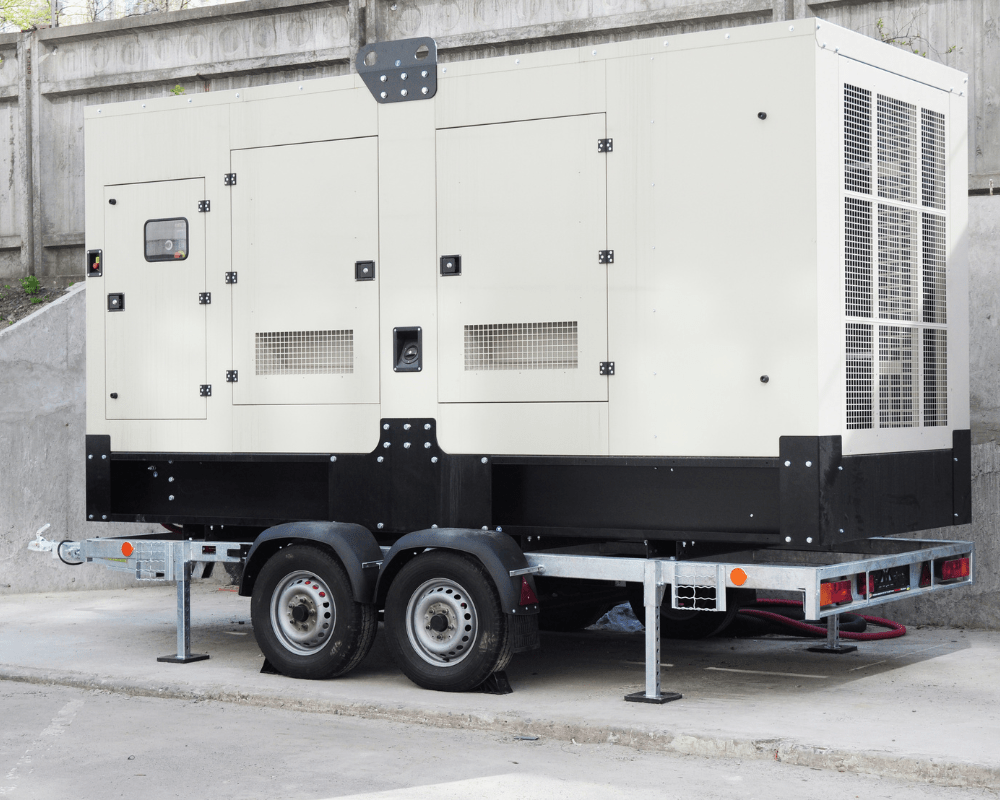Picture this: Your bustling office, filled with employees working diligently, computers humming, and servers processing critical data. Suddenly, without warning, the lights go out, and the room plunges into darkness. It’s a scenario that every business dreads – a power outage. In such moments, the heartbeat of your operations falters, and the risk of data loss looms large.
This is precisely why understanding the different types of commercial battery backup systems is essential. In this comprehensive guide, we’ll navigate through these systems, unravel their advantages, delve into their workings, and guide you in selecting the perfect solution for your business needs.
Have you ever wondered how businesses manage to stay operational during power outages, ensuring that critical systems and data remain intact?
In this article, we will delve into the world of commercial battery backup systems, shedding light on the diverse options available.
By the end of this guide, you’ll have a clear understanding of the types of commercial battery backup systems, their benefits, and how to select the best one for your specific needs.
The Importance of Commercial Battery Backup Systems
Before we dive into the specifics, let’s establish why these systems are crucial for businesses.
Protecting Data and Operations
Uninterruptible Power Supplies (UPS)
Uninterruptible Power Supplies, or UPS systems, are the first line of defense against power disruptions. They provide instantaneous power when the main source fails, ensuring that your critical data remains safe and your operations continue without a hitch.
Generators
Generators, both standby and portable, offer extended power during outages. They are indispensable for larger commercial establishments, maintaining business continuity over extended periods.
Sustainability and Efficiency
Solar Battery Backup Systems
In an era of increasing environmental consciousness, solar battery backup systems are gaining popularity. These systems harness solar energy, reducing electricity bills and reliance on non-renewable sources.
Fuel Cells
Fuel cell backup systems are not only efficient but also eco-friendly. They generate electricity through a chemical reaction, emitting minimal pollutants and providing a sustainable power source.
Understanding the Types
Uninterruptible Power Supplies (UPS)
Standby UPS
Standby UPS systems are suitable for small businesses. They switch to battery power instantly during a power outage, protecting against data loss and equipment damage.
Line-Interactive UPS
Line-Interactive UPS systems offer enhanced protection against voltage fluctuations. Automatic voltage regulation stabilizes the power supply, ensuring the safety of sensitive equipment.
Online Double-Conversion UPS
Online Double-Conversion UPS systems provide the highest level of protection. They continuously convert incoming AC power to DC and then back to AC power, guaranteeing a seamless transition to battery power, ideal for critical applications.
Generators
Standby Generators
Standby generators automatically activate when the main power source fails. They are common in hospitals, data centers, and large manufacturing facilities, ensuring uninterrupted operations.
Portable Generators
Portable generators offer versatility and mobility. They are useful for smaller businesses and can serve as temporary power sources during emergencies.
Solar Battery Backup Systems
Lithium-Ion Battery Backup
Lithium-ion batteries are the preferred choice for solar backup systems due to their high energy density and long lifespan. They ensure a reliable power source even when the sun isn’t shining.
Fuel Cells
Proton Exchange Membrane (PEM) Fuel Cells
Compact and quick to start, PEM fuel cells are ideal for businesses that require rapid power restoration.
Solid Oxide Fuel Cells (SOFC)
Known for their high electrical efficiency, SOFCs can operate on various fuels, including natural gas and biogas, making them versatile and efficient.
Selecting the Right System
Factors to Consider
When choosing a commercial battery backup system, several factors come into play:
Load Capacity
Understanding your business’s power requirements is essential. Ensure the backup system has the capacity to support your operations.
Space Availability
Consider the physical space available for installation, whether it’s a UPS, generator, or fuel cell.
Fuel Source
For generators and fuel cells, selecting an appropriate fuel source that aligns with your environmental goals and operational needs is crucial.
Maintenance Requirements
Different systems have varying maintenance needs. Familiarize yourself with the maintenance requirements to ensure the longevity and reliability of your chosen backup system.
FAQs
Q: How long can a UPS system provide power during an outage?
A: The backup duration depends on the UPS system’s capacity and the load it supports. Smaller UPS systems may provide power for a few minutes, while larger units can sustain operations for several hours.
Q: Are solar battery backup systems cost-effective for businesses?
A: Yes, solar battery backup systems can be cost-effective in the long run, as they reduce electricity bills and offer backup power during outages.
Q: Do fuel cell backup systems require special fuel storage?
A: Yes, fuel cell systems require safe storage and handling of hydrogen or other fuel sources, following industry regulations.
Q: What is the typical maintenance schedule for standby generators?
A: Standby generators should undergo routine maintenance every 6 to 12 months, including oil changes, filter replacements, and load testing.
Q: Can I install a backup system myself, or should I hire professionals?
A: While portable generators may be suitable for DIY installation, larger backup systems like UPS and standby generators should be installed by qualified professionals.
Conclusion
In an era where businesses are heavily reliant on technology, the ability to ensure continuous operations is paramount. Power outages can be disastrous, but with the knowledge of different types of commercial battery backup systems, their advantages, and the considerations when choosing one, you can safeguard your business against unexpected disruptions. Whether it’s a UPS, generator, solar battery backup, or fuel cell system, investing in reliable backup power is an investment in the longevity and success of your business.
Remember, the key to business resilience is preparedness. Don’t wait for the next outage to act. Contact Onpoint Tech Systems online or call (561) 300-7405 for Palm Beach or (954) 278-9000 for Broward, or (305) 735-2012 today for a consultation to explore the best commercial battery backup solution tailored to your needs and ensure uninterrupted power for your business.
Contact Onpoint Tech Systems today to ensure uninterrupted power for your business!



